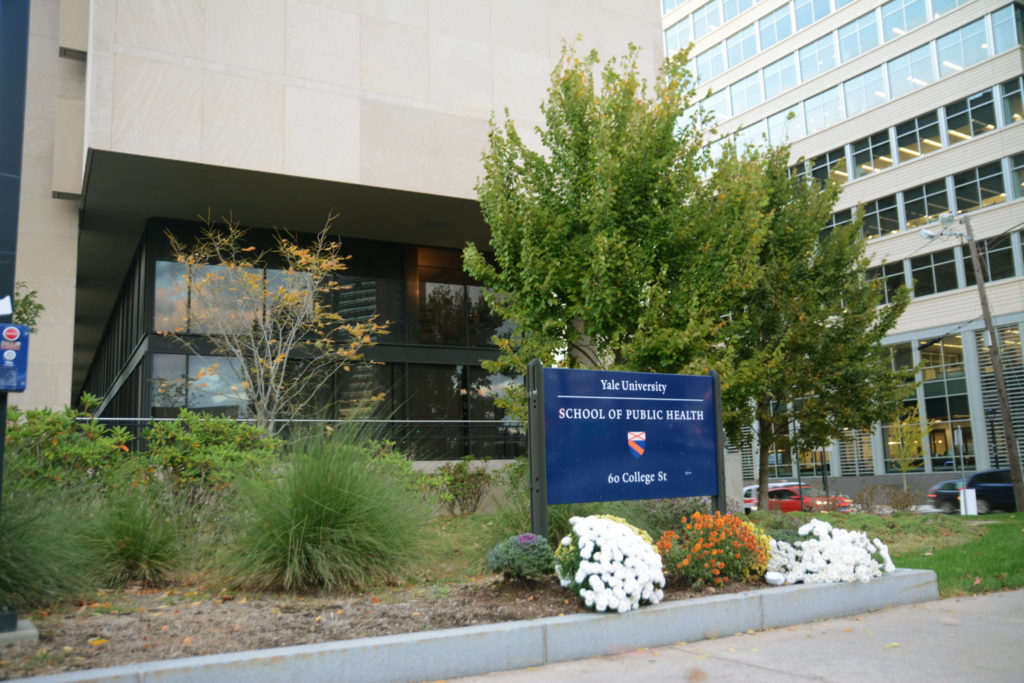
Yale Daily News
In a critical time for the field of public health and virtual learning, the Yale School of Public Health’s new online executive master’s in public health (MPH) program offers a new pathway to acquire an MPH degree.
YSPH Dean Sten Vermund explained the basics of the program, which aims to make public health education more accessible to diverse groups, in a video message released on Sept. 10. The course of study will last for two years and instruction will mostly be delivered online, with the exception of three five-day in-person intensives led by the Global Health Leadership Initiative (GHLI). These intensives represent a key aspect in the program. All participants will receive a $10,000 scholarship to help offset the costs of attendance.
“Public health is a public good,” Martin Klein SPH ’86, senior advisor to the dean of YSPH and director of the MPH program, wrote in an email to the News. “By expanding the reach of YSPH we increase our ability to improve health, prevent disease, and advance the school’s and university’s mission to be a force for good in the world.”
Vermund explained that each of the GHLI-led intensives has a different focus and will be taught to all students. According to Leslie Curry, professor of health policy and management at YSPH, the intensives will focus on design thinking, strategic management of resources and leadership of complex systems.
The second element is focused on knowledge that is central to the field of public health, such as public health policy and data-driven decision making, according to Vermund.
There are then four different areas of specialization that form the third pillar of the Executive MPH program. These include: health informatics, environmental health sciences, applied analytical methods and epidemiology. Students can choose to focus on one or two of these areas, according to Vermund.
The final part of this program is a year-long capstone project, in which students apply all they have learned.
“This has been a strategic goal for the School of Public Health, to expand its offerings, to be able to reach more people, more diverse people, to reach working professionals that can’t necessarily take a full year off, folks that want to stay in the workforce but also want to build their public health capacity,” said Erika Linnander, director of GHLI. “I think it’s been a priority for the School, or a strategic goal of the School, for at least a couple years.”
Klein explained that the program was developed by consulting members of Yale faculty who were familiar with online education, in addition to staff at the Poorvu Center.
He also said that the Horace W. Goldsmith Foundation has supported this program with a grant, which made it possible to develop the experience and technical knowledge necessary to launch the program.
When asked why this program was developed, Klein writes that YSPH “created this program [to] educate working public health professionals who could not leave their jobs and interrupt their careers to come to YSPH to get their degree.”
While this goal is of a broad scope, it nevertheless feels even more prescient given the current COVID-19 pandemic. Klein points out that “the pandemic has shown us the need for a larger, better trained public health workforce.”
Linnander added that YSPH has “big things to tackle” and hopes that this program will attract a diverse group of people to do so.
Curry described the “twin pandemics,” with COVID-19 on the one hand, and “a second pandemic around racial disparities in everything from health and healthcare outcomes through to wealth accumulation” on the other.
The main goal of this program is to make public health education more accessible so that diverse groups of people can gain advantage from it, according to YSPH staff. They can also use that advantage to improve the public health of their communities and the nation at large.
When asked whether this gives an indication of the future for YSPH, Curry said that while the in-person element of education will always be important, the school “has a responsibility to become more facile in online learning,” especially given that “often online delivery platforms can be an equalizer.”
Applications to the new online executive master’s degree in public health program are now open.
Amre Proman | amre.proman@yale.edu







